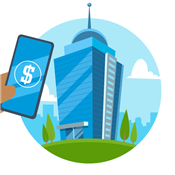Fundrise vs CrowdStreet vs Yieldstreet
Fundrise, CrowdStreet, and Yieldstreet are popular platforms for real estate and alternative investments. Which one is best for you? Read on.
 |
Want to diversify your portfolio? Crowdfunding investment apps like Fundrise, Yieldstreet, and Crowdstreet can help.
All three platforms let you invest in alternative assets like real estate and art. But they cater to different types of investors.
This comparison guide breaks down the differences, including investment types, minimums, and fees.
Read on to learn which one is best for you.
Who Each One is Best For
- Fundrise is best for beginners and small investors who want a diversified portfolio of real estate projects. You can start with just $10.[1]
- Yieldstreet is for investors who want to diversify with alternative investments, including real estate, art, and corporate and consumer financing. You can start with $10,000.[2]
- CrowdStreet is for accredited investors looking to invest in high-quality commercial real estate projects. You must have at least $25,000 to invest.[3]
Here's a quick overview table comparing the three companies.
 |  | ||
| Annual Fee | $0 platform fee; Sponsor fees vary for each deal | 1.5% management fee for the Alternative Income Fund; Fees vary for individual investment offerings (usually 1-2%) | |
|---|---|---|---|
| Accredited Investor Requirements | None for the Alternative Income Fund; Must be accredited investor for individual investment offerings | ||
| Minimum Deposit | $10,000 minimum for the Alternative Income Fund; Individual investment offerings typically starts at $10,000 | ||
| Investment Period | 5+ years (with opportunities to liquidate on a quarterly basis) | 5 years for Alternative Income Fund (with opportunities to liquidate on a quarterly basis); Varies for individual offerings | |
| Investment Types | Commercial, single family, multi-family, industrial | Commercial, multi-family, industrial, land | Residential & commercial real estate, sports car leasing, art financing, marine vessels and deconstruction, supply chain financing, litigation financing |
| Dividends | Choose quarterly payouts or auto reinvest | Some properties generate monthly or quarterly dividends | Alternative Income Fund pays dividends quarterly; can choose to auto-invest or cash payout |
| Visit Site | Learn More | Visit Site | |
| Terms Apply. | |||
How They Are Similar
- All three platforms offer alternative investments with low correlation to the stock market.
- All three offer investments that pay dividends. They can all be a source of passive income.
- All three offer funds if you want to invest in a simple diversified portfolio with one investment.
- All three let you invest with an IRA.
However, the similarities end here. Read on for the main differences.
How They Are Different
- Fundrise and CrowdStreet are only for investing in real estate, while Yieldstreet also offers other alternative assets like art.
- Fundrise and Yieldstreet are open to all investors, while CrowdStreet is only for accredited investors.
- Fundrise only requires a $10 minimum. Yieldstreet's minimum is $10,000, while CrowdStreet's is $25,000.
- Fundrise mostly offers prebuilt portfolios. CrowdStreet and Yieldstreet let you choose individual projects, giving you more of a say in your investment.
- CrowdStreet offers no liquidity, while the other two have options for early withdrawal.
Now let's get into the in-depth discussion.
Fundrise is best for new investors because there is no wealth requirement, and you only need $10 to start. The platform invests in a diversified portfolio for you, so you don't need to do much research.
Why Choose Fundrise
Fundrise is one of the most popular real estate investing platforms. It's open to everyone. There are no wealth or income requirements. You can get started with only $10.
Your money is automatically invested in a diversified portfolio of real estate projects across the U.S. It has a good mix of residential, commercial, and industrial projects.
Another benefit is that even though real estate is a long-term investment, Fundrise does have an early redemption program. You don't have to be locked in for 5 years.
You may like Fundrise if you:
- Want a prebuilt portfolio and want to be completely hands-off
- Have only a little bit of money to invest
- Want the option to withdraw early
Fundrise
- Minimum Deposit: $10
- Accredited Investor Requirements: None
- Annual Fee: 1% management fee
- Investment Types: Commercial, single family, multi-family, industrial
Pros:
| Cons:
|
How Fundrise Works
Fundrise lets everyone invest with just $10. You'll be invested in the Fundrise Flagship Fund, which has a diverse range of real estate projects across the U.S.
Once you have a $5,000 balance, you can customize your portfolio to suit your goals better. You can choose between 4 investment plans: [4]
- Supplemental Income: Focuses on income-generating properties. You earn more dividends.
- Balanced Investing: A balanced mix of income and growth properties. You earn money through both dividends and appreciation.
- Long-Term Growth: Focuses on properties that are expected to appreciate. You earn fewer dividends now but have higher potential long-term returns.
- Venture Capital: Invests in top-tier private technology companies before they IPO. Your expected returns are in the form of appreciation over the long term.
Accredited investors with $100,000 can access private funds when they become available. Fundrise Pro members can create custom investment plans and take greater control of their investment portfolio.
Invest in Real Estate with $10+
- Only $10 minimum investment
- Get a diversified portfolio of real estate projects across the US
- Open to all investors
Why Choose Yieldstreet
Yieldstreet offers other alternative investments beyond just real estate. You can also invest in art, commercial lending, litigation financing, and more.
Yieldstreet is open to accredited and non-accredited investors (we'll explain more below). For non-accredited investors, the minimum investment is $10,000.
Since 2014, Yieldstreet has had an average net annualized IRR of 9.6%. [5]
You may like Yieldstreet if you:
- Want to diversify with other types of alternative investments
- Are looking for "safer" asset-backed investments
Yieldstreet
- Minimum Deposit: $10,000 minimum for the Alternative Income Fund; Individual investment offerings typically starts at $10,000
- Accredited Investor Requirements: None for the Alternative Income Fund; Must be accredited investor for individual investment offerings
- Annual Fee: 1.5% management fee for the Alternative Income Fund; Fees vary for individual investment offerings (usually 1-2%)
- Investment Types: Residential & commercial real estate, sports car leasing, art financing, marine vessels and deconstruction, supply chain financing, litigation financing
Pros:
| Cons:
|
How Yieldstreet Works
Yieldstreet offers investment opportunities for accredited and non-accredited investors. Their offerings include:
- Yieldstreet Alternative Income Fund: A professionally managed fund with lots of different alternative assets (including real estate, corporate financing, art, and more). It's open to everyone and requires just a minimum of $10,000.
- Individual offerings: Accredited investors can choose their own investment. The minimum is at least $10,000.
- Short-term notes: These are notes issued by Yieldstreet to fund investment opportunities on the platform. They have shorter terms with a set, guaranteed interest rate. This is only for accredited investors, too.
Most of their investments are debt-based and backed by assets. This means the returns are lower, but it offers some security.
Online Alternative Investments
- Exclusive access to private market investments
- Wide range of alternative investments like art, real estate, legal financing, and more
- Goal-based investing for growth or income
- Minimums starting from $10,000
Why Choose CrowdStreet
CrowdStreet is only open to accredited investors.[6] It only offers commercial real estate projects.
CrowdStreet is very selective with its projects and does a lot of due diligence. It tends to pick opportunistic projects with higher risk and higher potential returns.
Since its founding in 2014, CrowdStreet has averaged an impressive 12.9% IRR.[7]
You may like CrowdStreet if you:
- Want to pick your real estate investment projects
- Are an accredited investor with at least $25,000 to invest
- Are comfortable with higher risk for higher returns
- Don't mind having your money locked up for 3-10 years
CrowdStreet
- Minimum Deposit: $25,000
- Accredited Investor Requirements: Accredited investors only
- Annual Fee: $0 platform fee; Sponsor fees vary for each deal
- Investment Types: Commercial, multi-family, industrial, land
Pros:
| Cons:
|
How CrowdStreet Works
CrowdStreet only offers commercial projects, such as office, multifamily, retail, and industrial buildings. You have 3 ways to invest:
- Individual Deals: Choose your own properties. Deals generally start at $25,000.
- Funds & Vehicles: Invest in multiple projects with just one investment. Each fund contains similar projects (for example, a multifamily fund). Funds start at $25,000.
- Tailored Portfolio: Work with advisors to create a custom investment strategy based on your goals. They manage your portfolio for you. The minimum is $250,000.
CrowdStreet does not offer any liquidity. You're locked in for the entire term, usually 3-5 years.
Fundrise vs CrowdStreet vs Yieldstreet Fees
The three platforms charge comparable fees. Here's what you can expect:
Fundrise:
- 0.15% - 1.85% annual management fee (fees vary per individual fund)[8]
- 0% - 2% acquisition fee for new projects
Yieldstreet:
- 1.5% management fee for the Alternative Income Fund; Fees vary for individual investment offerings (usually 1-2%)
CrowdStreet:
- 1% - 2% annual management fee
- 1% - 2% one-time acquisition fee
Minimum Investment
Fundrise is the best option for small investors. You can open an account and start investing with only $10.
Yieldstreet lets you invest in their Alternative Income Fund, starting with just $10,000.[9] For their individual offerings, minimums generally start at $10,000 and go up to $50,000.
CrowdStreet generally requires at least $25,000 minimum for its deals. But the minimum varies by project. Their funds also start at $25,000.
Returns and Risk
If we're looking purely at returns, then CrowdStreet wins with a 12.9% annualized IRR to date. However, this doesn't mean it will be your result. Your returns will depend on which project(s) you choose.
But CrowdStreet's deals tend to be higher risk. While some projects achieved higher-than-expected returns for investors, some also had negative returns. You can see the actual performance of every one of their realized deals on their website.
Yieldstreet generally offers lower-risk investments because they tend to be debt-based instead of equity. The returns are lower at a 9.6% annualized IRR.[5]
Fundrise has seen annualized returns from 10.63% to 22.99% from 2017 to 2021.[10] Because your portfolio contains dozens of different projects, the risk is much more spread out.
Dividend Distributions
Fundrise pays quarterly dividends. You can either get it in cash or automatically reinvest it back into the portfolio.
CrowdStreet's distributions depend on the project. Most give quarterly distributions, while some may give monthly.
Yieldstreet also pays quarterly dividends for its Alternative Income Fund. For individual offerings, distributions could be monthly, quarterly, or when the entire project is settled.
All three platforms have the potential to be a source of passive income. Of course, it depends on how much you invest in them.
Liquidity
Real estate and other alternative investments are generally not liquid. Usually, once you invest, you'll have to hold on to it for years until maturity.
Fundrise offers the greatest liquidity. Every quarter, they offer an early redemption program where you can sell your shares if you wish to withdraw.
Yieldstreet also has a share repurchase program every quarter. However, they limit the total shares repurchased to no more than 5% of the total number of shares. So you may not get the full amount requested if a lot of other investors are selling too.
Their individual offerings have no early redemption option.
CrowdStreet does not offer any options to withdraw early.
What the Experts Say
CreditDonkey asked a panel of industry experts to answer readers' most pressing questions. Here's what they said:
Bottom Line
Fundrise, CrowdStreet, and Yieldstreet cater to different investors, so it may already be clear which one is best for you.
Fundrise is good for anyone looking to dip their toe into real estate investing. It automatically invests your money for you, so it's great for beginners who want to be hands-off.
If you are an accredited investor with higher risk tolerance, you may consider choosing your own commercial real estate deals on CrowdStreet. You'll have more control over your investments.
And lastly, Yieldstreet has the widest range of offerings since it has other alternative assets besides just real estate.
Invest in Real Estate with $10+
- Only $10 minimum investment
- Get a diversified portfolio of real estate projects across the US
- Open to all investors
Online Alternative Investments
- Exclusive access to private market investments
- Wide range of alternative investments like art, real estate, legal financing, and more
- Goal-based investing for growth or income
- Minimums starting from $10,000
Finally, remember that all investments carry risk. Past performance on any platform does not guarantee future results.
References
- ^ Fundrise. What is the minimum initial investment?, Retrieved 7/6/2022
- ^ YieldStreet. How much can I invest?, Retrieved 4/26/2023
- ^ CrowdStreet. Is there an investment minimum?, Retrieved 7/15/2024
- ^ Fundrise. What is the difference between the Investment Plans?, Retrieved 07/15/2024
- ^ YieldStreet. Statistics, Retrieved 7/15/2024
- ^ CrowdStreet. Accreditation overview, Retrieved 07/15/2024
- ^ CrowdStreet. Marketplace Performance, Retrieved 7/15/24
- ^ Fundrise. Offering Circulars, Retrieved 7/15/2024
- ^ Yieldstreet. Yieldstreet Alternative Income Fund FAQs, Retrieved 04/13/2025
- ^ Fundrise. Annual returns of client accounts, Retrieved 7/6/2022
Write to Anna G at feedback@creditdonkey.com. Follow us on Twitter and Facebook for our latest posts.
Note: This website is made possible through financial relationships with some of the products and services mentioned on this site. We may receive compensation if you shop through links in our content. You do not have to use our links, but you help support CreditDonkey if you do.
Fundrise, LLC ("Fundrise") compensates CreditDonkey Inc for new leads. CreditDonkey Inc is not an investment client of Fundrise.
|
|
|









